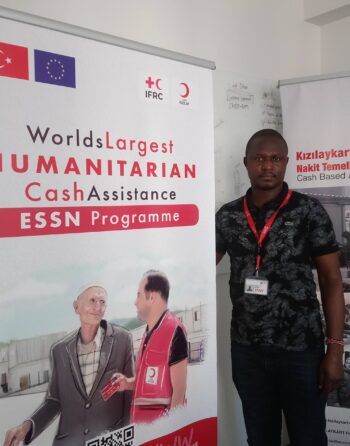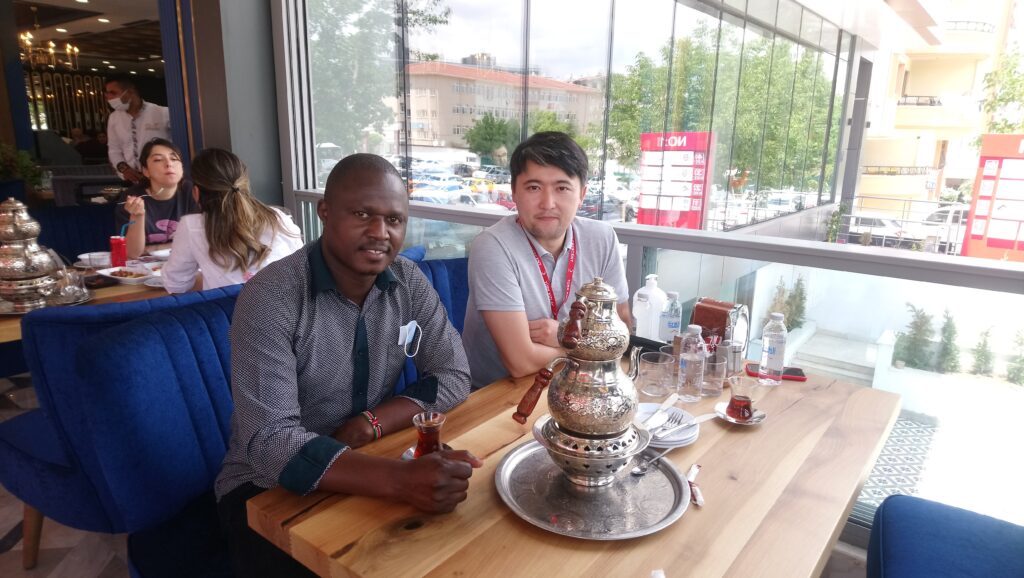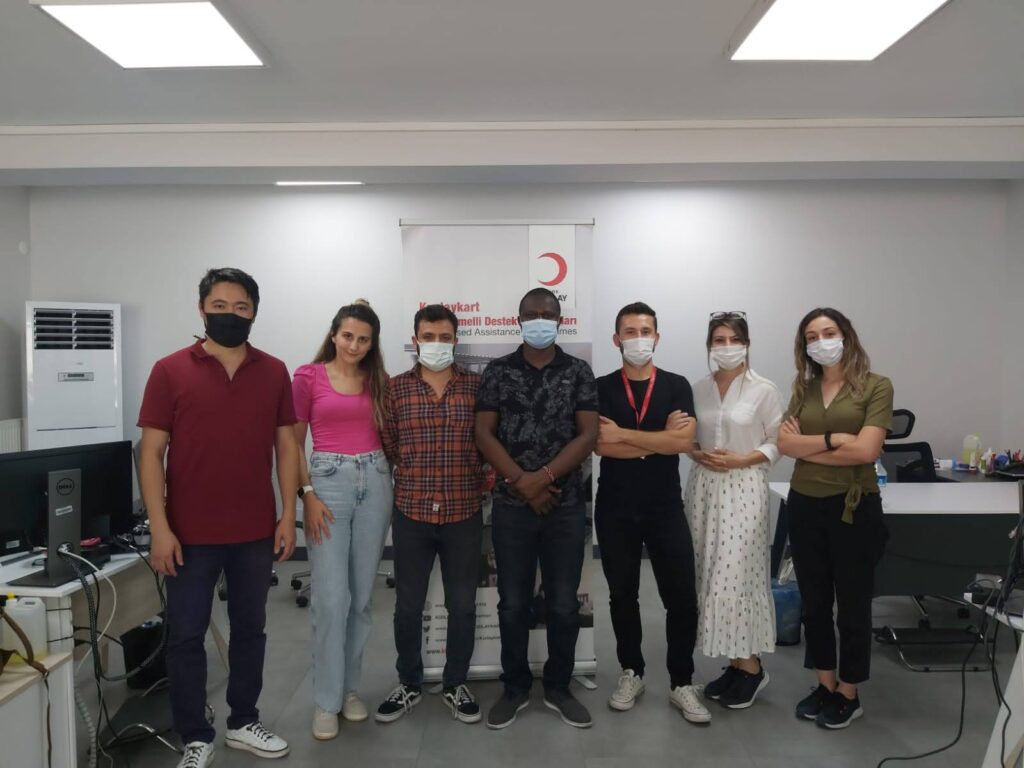March 14, 2023
CPDP Blog: Fredrick Orimba’s story
This blog series will focus on the highlights from different Cash Practitioner Development Programme graduates, allowing practitioners to share what they have learnt and experienced during their Cash School learning deployments.
The Cash Practitioner Development Programme aims to expand the ready pool of cash experts available to deliver humanitarian cash assistance, and to strengthen the community of qualified practitioners with up-to-date skills in all areas of cash assistance. Cash deployments are a key element of participants learning schedules, these deployments aim to enhance skills and confidence in implementing cash based assistance. Some deployments are run in partnership with NORCAP, with practitioners accessing deployment opportunities from a range of humanitarian agencies.
Meet Fredrick Orimba from Our 2021 Cash Practitioner Development Programme!
Frederick Orimba, a then staff member at the Kenya Red Cross Society and now Technical Lead for Cash and Voucher Assistance (CVA) and Social Protection at the German Red Cross, reflects on his journey with CVA and offers advice to others considering applying to join the Cash Practitioner Development Programme (CPDP).

Why did you decide to start working in cash?
I began working with the Kenya Red Cross first as a Regional Health Coordinator and later as a Regional Disaster Management Officer. When the International Federation of the Red Cross (IFRC) visited Kenya in 2012 to roll out training on Cash Transfer Programming (CTP), as it was called then, I was excited to be selected to represent the West Kenya Region. However, my team at the time did not understand the concept of cash and thought it was a financial and accounting training. They instead felt that a staff member from the finance department was best suited to attend the training. The training made us all realise that cash isn’t simply related to finance, but a tool for providing cash to support people in crisis. After completing follow up assignments from the training, the region received funding to implement cash transfers using mobile money in flood responses in West Kenya. The project was very successful and contributed to knowledge evidence on the effectiveness of cash.
Why did you choose to undertake the Cash Practitioner Development Programme (CPDP)?
Having done most of the technical cash courses out there, both online and face-to-face trainings including the Practical Emergency Cash Transfer (PECT) training, I was looking for other opportunities to further develop my skills through higher level training and coaching and to gain cash experience in different contexts beyond Kenya. I heard about the CPDP programme through someone in Kenya and made a commitment to join the next cohort to grow my cash programming skills and network to develop myself further. I thought: “this programme is something I need”. I made an application and luckily, I was selected.
Where did you undertake a deployment?
I did my deployment learning in Turkey from 17th June to 30th August 2021. The Turkish Red Crescent has the largest cash programme for social protection, the Emergency Social Safety Net (ESSN). I learnt a lot from the massive Kizilaykart cash project!

Tell me about a few of your highlights from the CPDP programme.
- My mentor really kept me on my toes. It was not always easy to balance work and the programme so my mentor was a huge help. We had some great moments together and we learnt a lot from each other!
- I loved being deployed to Turkey. I had been looking for deployments for ages. I got to see how people do Cash outside of Kenya.
- The alumni meetings have been great. I was always happy to know I could reach out to someone if I needed to ask questions.
What advice do you have for someone new to the programme?
Any serious CVA expert looking for an opportunity to advance their CVA skills should enroll in this programme. The programme takes learners through practical learning by applying and implementing CVA in real time scenarios giving participants an opportunity to gain experience, insights and technical expertise that is not attainable in a conventional classroom setting or online. It also provides an opportunity to connect with other CVA experts in other parts of the globe for peer-to-peer learning. It is not as easy as just joining. You need to plan your time well because you need to complete everything within one year.
What difference has the CPDP made to you and your career?
Apart from building my skills and capacity in CVA, it has improved my CV. Not many people can say they have gone through a year–long training in cash. It has given me a step up in the field of CVA.

What difference has it made for the National Society (NS)?
- When you build staff capacity, you are building the capacity of the NS as covered in the CVA preparedness pillars of a NS. When I returned from my deployment, I made proposals to my head of department about how we can improve CVA programming in the NS. We hired a staff member to work in Cash Information Management, which really improved our programming in the use of cash and projects.
- The skills I have gained are helping me a lot in my current work and simultaneously my former NS among others have benefitted from it as we are supporting them as a Partner National Societies.
Any final thoughts?
Cash and Voucher Assistance (CVA) usage seems to be reaching a plateau. Some people are still reluctant to use cash and this is a discussion that needs to be pushed for us to continue contributing to our target. By 2025, the IFRC commits to deliver 50% of humanitarian assistance through the use of cash and vouchers. This can only be achieved through sustainable advocacy for and use of cash and vouchers among RCRC Movement partners.
